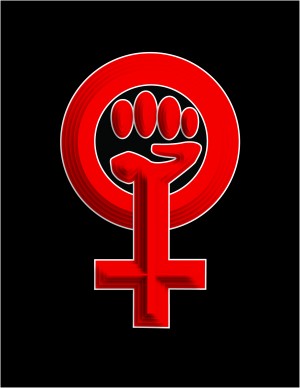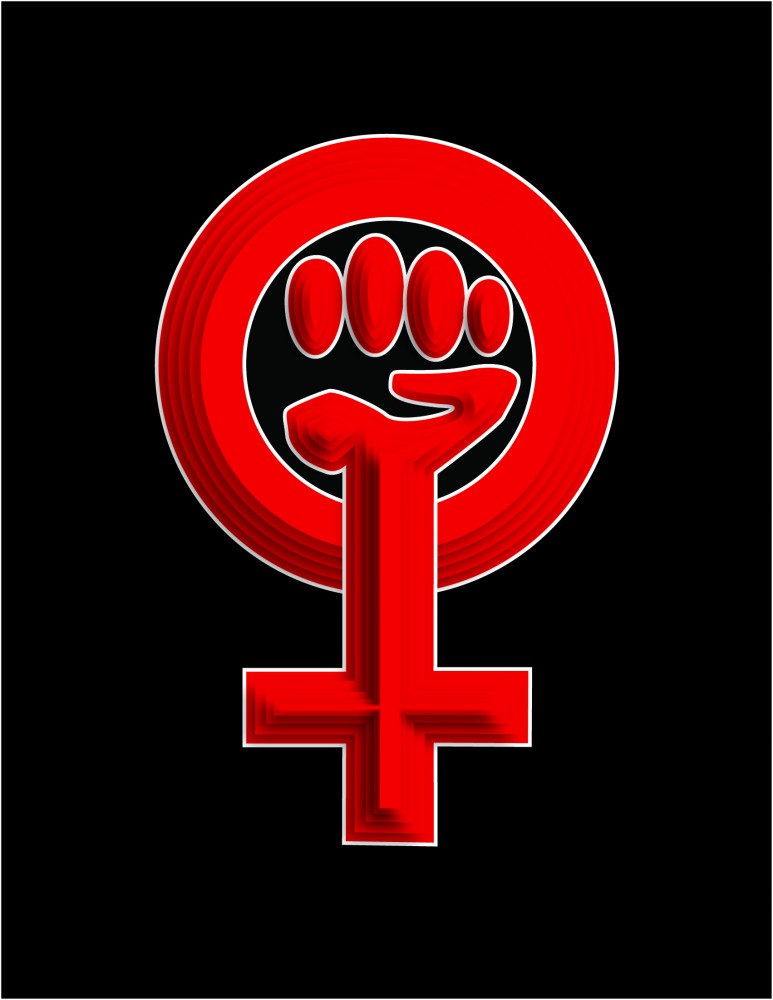If there is one thing that makes me chuckle and cringe at the same time, it is a sentence that begins with “I’m not a feminist, but”. And invariably ends with a clause supporting a blatantly feminist tenet. Such as how awesome voting and a college education are.
Objectively speaking, every single female student at BU is a feminist, provided she takes classes in the hope of making a better future for herself. Every one of these approximately 18,000 girls is a feminist if she registers to vote when she turns 18, sits in the same lecture as a male student, or enjoys her legal right to have a hook-up for the weekend, or conversely, turn down a sexual advance.

Feminist movements and their definitions are diverse, but that doesn’t mean it all has to be complicated. Feminism can be personalized to the individual. Jessica Valenti, author of Full Frontal Feminism puts the possibilities in layman’s terms: “One, Belief in the social, political, and economic equality of the sexes. Two, the movement organised around this belief.” Or it could mean that “[Feminists are] just women who don’t want to be treated like shit,” according to Su, an Australian woman interviewed by DIY Feminism in 1996. (1)
Identifying as a feminist (or pro-feminist for those who feel they cannot fully relate) is not a commitment like joining a political party. A registered republican, for example, can still vote Democrat or Green Party if they choose.
In her quest to make this pesky “F” word accessible to the average American, she explains her own hesitance to call herself a feminist in her younger years. “My excuse-ridden thinking was, ‘Oh there’s so many different kinds of feminism…I’m a humanist, Blah blah blah’. Bull. I was just too damn freaked out to be the only one… No one wants to be associated with something seen as uncool or unattractive.”
But it’s time to put aside excuses. “If you want to make a difference in the world, you can’t worry too much about what people think,” says Laurel Thatcher Ulrich (2). Ulrich is a more academic writer than Valenti, and author of Well-Behaved Women Seldom Make History.
Being a feminist means that, as a woman, you enjoy having the same legal rights as men. And men, you can get in on the fun too! It means your mothers could work so they could afford sending you to college or your girlfriends will get properly educated about their bodies.
And for those who refute the gender binary, or were especially happy that Prop 8 got turned over, are welcomed as feminists as well. The great thing about it is that, though often perceived as a heterosexual women’s issue, at the end of the day it’s all about one thing: choice.
CHOICE means that an American woman has the right to a career but could choose (though I personally would not) to be a stay-at-home mom instead. It means that YOU can choose what to believe, as long as you believe in gender equity. FEMINISM is not a regime—it’s one of the most positive, affirming -ism’s out there.
That’s why I cringe and roll my eyes any time I hear someone (especially a woman) claim to not be a feminist, especially when he or she cites the Bra Burners of the 1970s. Funnily enough, bra-burning NEVER EVEN HAPPENED. Were that to be true, however, one should not let radical members of any movement accurately represent the group as a whole.
This inclusive -ism has always been about building people up in the face of injust social constructs. Aside from the fact that I have read alot on the subject, I am an expert on feminism simply because I am no different than the 18,000 other women potential feminists at this school.
For starters, I am an adolescent girl at an American university. I chose a major I am passionate about, and sometimes I enjoy my homework. I plan on attending grad school, and if I play my cards right, I’ll have a fabulous career and enjoy coming into work everyday.
Every day here is the first day of the rest of my life, because every day I am just that much closer to becoming the free and independent person my parents raised me to be.
And when I’m not in class, I’m eating in the Student Union like every other one of you. Or on the weekends, I am dressing up to go out with my friends. I pay attention to fashion, I can’t help but feel good showing off my girlish figure in a short skirt, and I’m still a feminist. I don’t give boys my number or wear make-up in spite or because of being a feminist. I do it because I can, because I like to, because I’m not unique to any other co-ed. I go parties in Allston, I love men with beards, and I f*ck with impunity.
I drink cheap wine with Olympian thirst, I traipse around hipster cafes in flannel. I also yell at the TV when the FIFA tournaments are on, I get more excited about the Science Channel than any new Jennifer Aniston film, and I like to read in my spare time. What it boils down to is that I can be stereotypically girly and be a tomboy at heart at the same time. My experiences are the same that everyone else has had, and that’s what makes me such a damn expert.
I have tried and failed to get into committed relationships. I have made friends, and lost them. I’ve used my charisma and good looks to make tips at work. I’ve pulled all-nighters studying for finals, because they’re that important to me. I’ve been sexually harassed in public, and I have felt used by a man.
I consider myself lucky that I have been able to take a step back and ask myself, is this right? Is this fair? And if it’s not, how can I deal with it? The truth is that life really is not fair, and that ALL OF US are not merely affected by it, but sometimes we fuel the cycle even more. The first and best thing we can do though, is take that step back and look at the big picture. And in small ways, we can turn negative -isms that affect us into something positive.
1) Valenti, Jessica. Full Frontal Feminism: a Young Woman’s Guide to Why Feminism Matters. Emeryville, CA: Seal, 2007. Print.
2) Ulrich, Laurel Thatcher. Well-Behaved Women Seldon Make History. New York City: Random House. Web. 2003. Print


f yeah.
This is such a wonderful post!